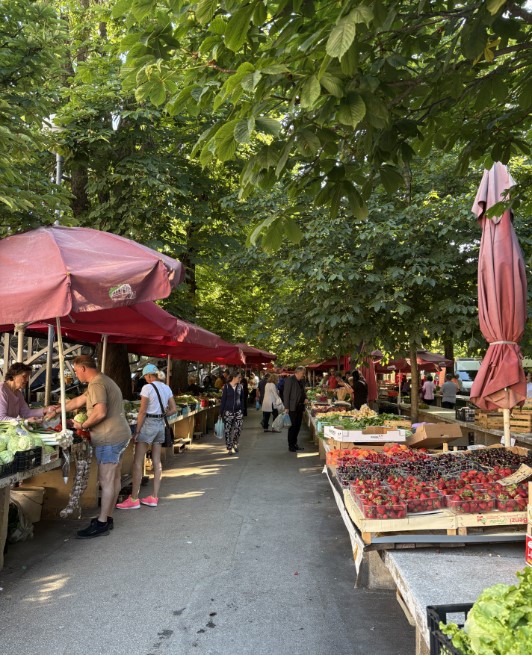Finding Comfort in the Uncomfortable Parts of Travel




The uncomfortable parts of being abroad are something everyone experiences — especially at first. Whether it’s figuring out what to eat, navigating different restaurant customs, or taking charge of your own travel logistics, there’s plenty to make even the most experienced travelers a little nervous.
This past week, two key takeaways from my Marketing Strategy class came to life through my travels:
1. The "knowledge function" of attitude theory
2. The power of prototyping
Before I lose you, let me explain.
The “knowledge function” theory suggests that we build mental frameworks through experience that help guide future decisions. The more we encounter a situation, the more we learn how to handle it next time. As for prototyping, we watched a TED Talk by Tom Chi on “rapid prototyping,” where he suggested that “doing is the best kind of thinking”. In reflecting on my second week, these topics consistently came to mind.
Food can be one of the biggest challenges while traveling. We all have to eat three times a day (plus a sweet treat, of course), and those seemingly simple decisions can be surprisingly draining in a new environment. I’ll admit, at home I definitely have my staple meals and snacks. So, committing to a four-week trip where I had less control over my food felt a little daunting. Pizza and pasta are great — until they’re not. But like anything, routines begin to form.
This is where I saw the knowledge function in action. At first, I was overwhelmed by unfamiliar menus and unsure of restaurant customs. But after a few meals, I started to recognize the patterns. My “mental bank” began storing helpful insights:
· Ask for still water if you don’t want sparkling water.
· Check if they’ll split the check before you order.
· When in doubt? You can never go wrong with pizza.
Each new experience is built on the last, making daily decisions easier and giving me confidence in situations that once made me hesitate.
The knowledge function also applies to social norms. On a recent weekend trip to Pula, Croatia, our group excitedly found a burger place after a long bus ride. We were seated in a peaceful outdoor garden area filled with quiet diners. Still buzzing with travel energy, we dove into loud conversation — until we noticed people glaring at us.
We’d unintentionally disrupted the calm atmosphere. It was embarrassing, yes. But it became one of those moments that stays with you — a quiet reminder tucked away in your mental bank to be more observant next time. Social cues vary by culture and experiencing them firsthand teaches you more than any guidebook ever could.
Tom Chi’s talk on prototyping wasn’t just about inventing products — it was about taking action before you have everything figured out. Travel has taught me the same thing.
For our Pula trip, we assumed we could take a train. But when we started booking, we discovered it was more complicated. So, we began texting transportation services, found someone who knew someone, gathered enough people to make a private bus affordable — and made it work.
The process was far from perfect. But each step forward gave us new information. That’s what prototyping is: You try something, learn, adjust, and keep moving. You can’t overthink your way through it — you have to take action and do it.
With every mistake and every small success, I’m building a mental database that helps me feel more grounded — not just as a traveler, but as a person. These uncomfortable moments have taught me how to adapt, observe, take initiative, and bounce back. They're shaping skills I know I’ll carry with me long after I return home.
And while you can try to plan for everything, nothing teaches like experience. That first leap into the unknown may feel like diving into the deep end — but every time I do, I learn and grow.

